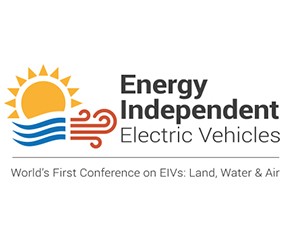New Zealand leads the world in zero emission renewable grid electricity now at 85%. With a nice balance between geothermal, hydroelectric, unusually continuous wind power and some solar, the country has less intermittency of green power than most.
Next comes devolution of these sources to off-grid supply on buildings and even on land, water and airborne vehicles. For example, a 20-person solar boat was recently launched with a "perpetual" six knot speed, that can power three houses on arrival. The technology comes from Naval DC in the Netherlands which presents at the world's first conference on the subject, "Energy Independent Electric Vehicles" at the Technical University of Delft Netherlands September 27-28.
This remarkable progress still leaves some requirement for batteries to allow the boat to travel at the same speed at night and allow buildings and grid to cope with peak demand and any intermittency remaining.
Building energy storage systems across New Zealand would represent an economic “game-changer” for the country within the next few years, according to new research by national grid owner-operator Transpower.
The company said its research findings show distribution-connected or community-scale batteries are expected to be economic for homes and business from 2020— promising “real potential and benefits from batteries for New Zealand consumers”.
Now Transpower is preparing to conduct trials of battery storage systems, while working with industry leaders to push for market and pricing reforms the company said will be needed to “unlock the value of battery systems to maximise their value”.
Transpower’s general manager for grid development Stephen Jay said: “We are actively evaluating opportunities for using new technologies throughout our network. We are preparing for what that future looks like and this battery research is the first of a number of reports we will release looking at technologies that could possibly have an impact on our business.”
“Battery projects at lower voltage distribution substations and at a consumer level are forecast to be economic in the next few years, due to the declining cost of battery systems,” Jay said. “Over time, we believe they will also become economic for the high voltage transmission grid and this will then provide battery resilience across the whole supply chain.”
Jay said Transpower is not planning large-scale high voltage trials with batteries “in the near term— but we will seek opportunities to work with and learn from others in joint projects where appropriate.”
According to Transpower’s study, the functionality of a battery as both a load and a generator at various times “will need to be examined, and regulatory and technical barriers to entry addressed”.
In the long-term, the study said battery storage at any location in the supply chain is expected to delay or replace the need to build additional thermal peaking plant and should over time reduce the cost of electricity to consumers.
Container-based battery storage systems in the order of 1-2MW “have the advantage that they can be implemented relatively quickly to target specific grid constraints in a controlled manner”, the report said. They can be ‘right sized’ for the first year of need, “with the possibility of increasing the storage capacity over time if load growth occurs”. This would “optimise initial capital expenditure and leverage the declining cost curve of future expansion”, the report said.
In addition, the report said ramping up battery storage projects would support national plans to boost the take-up of electric vehicles. According to Transpower, there are currently around 3,000 electric vehicles in the country, but government policy is targeting 64,000 vehicles by 2021-22.
“In future, we expect that electric vehicle batteries could have the capability to be part of a battery network, providing services when the vehicle is plugged in to charge overnight,” Transpower said.
For the full “Energy Independent Electric Vehicles" agenda and to register visit www.IDTechEx.com/delft17.










